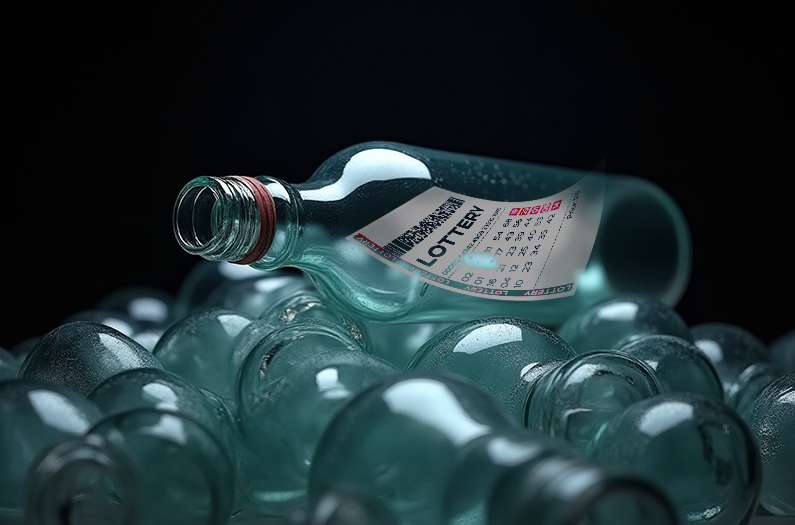The chance at an unlikely but substantial monetary reward gets people more jazzed about recycling than a small but certain reward, according to a new study. The findings suggest that implementing “bottle lotteries” as part of deposit return schemes could increase recycling rates, at no extra cost to local governments.
Two trillion beverage containers are produced every year, but only 34% of glass bottles, 40% of plastic bottles, and 70% of aluminum cans get recycled. Fifteen countries, 11 U.S. states, and 12 Canadian provinces have bottle-deposit refund systems in which a small sum (about 5 to 45 cents) added to the price of each beverage sold is refunded when people return the empty container for recycling.
These schemes lead to recycling rates of 78.3% on average – much better, but still leaving millions of tons of recyclables moldering in landfills.
Enter the idea of a bottle lottery, which aims to bring to recycling the same thrill that attends buying a lottery ticket. Norway currently has the world’s only bottle-recycling lottery system, which was implemented in 1997. The country boasts impressive beverage container recycling rates of nearly 97%, but until now there have not been any causal studies to work out to what degree this is due to the lottery.
In the new study, researchers conducted two experiments in which they offered people the choice between a guaranteed 10-cent reward for turning in recyclable beverage containers or a chance to win a larger reward (1-in-10 chance of $1, 1-in100 chance of $10, 1-in-1,000 chance of $100, or 1-in-10,000 chance of $1,000). Each study involved about 300 people; one took place at a series of food courts in Vancouver, British Columbia, and the other at a community food festival in Alberta, Canada.
Since the current bottle deposit is 10 cents per bottle in British Columbia and 10 cents for containers up to 1 liter in Alberta, a lottery along these lines would not increase the total cost of the recycling system, the researchers point out.
Participants in both studies preferred the chance at winning $1,000, the researchers report in the journal Waste Management. This option was chosen by 26% of people in Vancouver and 39% of people in Alberta.
The finding is “not at all” surprising, says study team member Jiaying Zhao, an environmental psychologist at the University of British Columbia in Vancouver. “The insight came from the Nobel-prize winning work in the 70s from Danny Kahneman and Amos Tversky that people prefer a small chance to win a large prize over the small guaranteed prize. So we applied this insight to the current recycling refund system, and it worked beautifully!”
Zhao and her collaborators also asked the study participants how happy they were about the prospect of receiving money and, in Vancouver, asked at the end of the study how happy they were with their participation. “What did surprise me was that people feel much happier about the chance to win a large cash prize, and even if they didn’t win, they didn’t feel less happy at the end,” Zhao says.
The researchers say this “anticipatory happiness” about the prospect of winning big could build more positive feelings about recycling programs.
In a third study, the researchers invited people to bring bottles for recycling into the lab. They were told either that they would receive 10 cents for each bottle they brought in, or would have a chance at winning $1,000.
People randomly assigned to the “bottle lottery” group brought in almost 3 bottles for every 2 returned by the other group, the researchers found. If a similar differential applied in a bottle lottery across the United States, it would result in over 2 million tons of additional bottles recycled, leading to greenhouse gas savings equivalent to taking 1 million cars off the road each year.
In addition, more people in the lottery group than in the other group brought at least one bottle to recycle. This suggests the scheme could increase the proportion of people who recycle, not just make current recyclers more diligent.
The researchers suggest implementing a bottle-lottery as an add-on while maintaining current guaranteed-payment recycling systems, since some people rely on collecting and returning recyclables for income. The team aims to arrange a larger study in collaboration with a British Columbia recycling organization see how their findings scale up, Zhao reports.
Source: Radke J. et al. “Probabilistic refunds increase beverage container recycling behaviour in British Columbia and Alberta, Canada.” Waste Management 2025.
Image: © Anthropocene Magazine.
